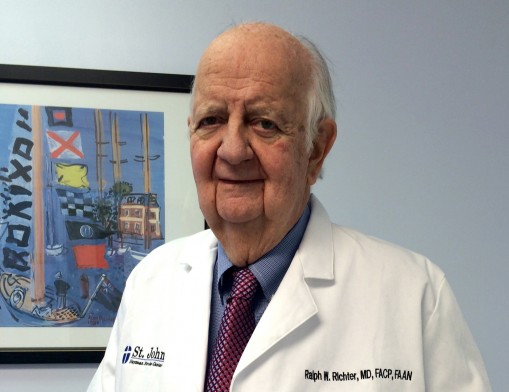
Dr. Ralph Richter is nationally and internationally well-known for his tireless work for patients with Alzheimer’s disease. He is president and principal investigator of Tulsa Clinical Research, where he conducts cutting-edge clinical research studies.
The development of new and better treatments for medical conditions requires not only thorough basic scientific research, but also clinical trials. Without the knowledge gained through clinical trials, no new medication would ever have the chance to be approved by the Federal Drug Administration (FDA) and reach the market. Without the many clinical trials that have been conducted in the last 20 years for example, many forms of cancer would not yet be curable or brought to remission today.
The biggest problem for research companies and medical investigators by far is the low number of individuals who are willing to participate in clinical research studies all over the country. The old but wrong myth of being regarded a “guinea pig” is unfortunately still widely prevalent in the population. In reality, patients enrolled in a clinical research study, no matter what medical area or condition is involved, receive the very best and responsible medical care that is also free in most cases. As clinical research is highly and tightly controlled by the FDA, the safety of research patients is of the utmost importance. The code of conduct for research professionals is of extremely high standards, while the study conduct is under constant control and monitoring by independent institutional review boards as well as other ethical organizations.
One condition placing a huge and fast growing burden on the population is Alzheimer’s disease. According to the most recent projections the number of people affected by this devastating disease in the United States alone is expected to reach 13.5 million by the middle of this century. The costs associated with it will amount to over one trillion dollars.
Institutions such as the National Institutes of Health (NIH) or the National Institute of Aging (NIA), as well as organizations such as the Alzheimer’s Association, are strongly encouraging all individuals with beginning memory complaints or with relatives who developed dementia to participate in one of the ongoing or upcoming clinical research studies in their region. Their websites provide listings of recent clinical studies with contact information.
So many questions regarding Alzheimer’s disease have yet to be answered. Every person at risk for dementia or with memory problems can contribute to finding answers by becoming a research hero. The immediate benefit of participating in a clinical trial might not always be for themselves. However, the newly developed knowledge during such a study for sure has the potential to benefit their children, grandchildren and future generations.
Research questions that have yet to be answered: What are the genetic risks and protective factors involved in memory disorders? Which factor(s) initiate the disease process? How can people at risk for the disease be identified before the process begins? Is prevention possible? Can more effective treatment interventions and medications be found? Will there be a cure at some point in time?
See more about Want to Become a Research Hero?:
https://www.valuenews.com/want-to-become-a-research-hero-news-article_4132

